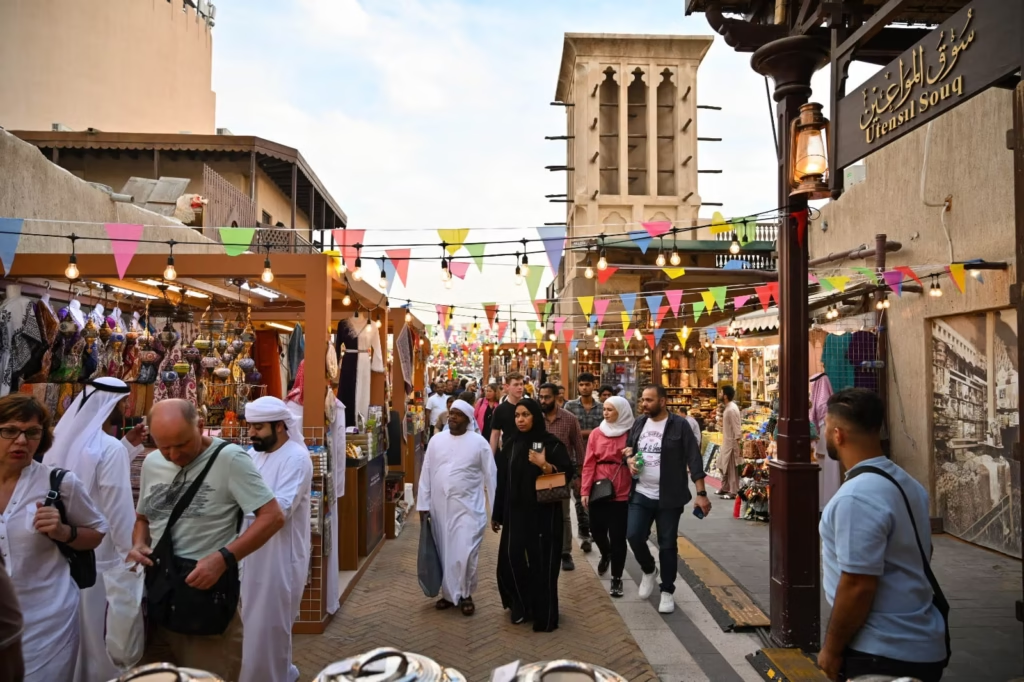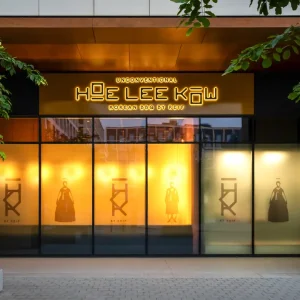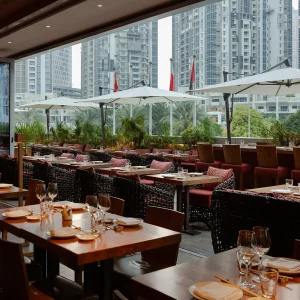Dubai’s relentless efforts to maintain order and cleanliness in the city have intensified during Ramadan, with over 700 illegal street vendors being fined in the past few weeks. The Dubai Municipality has launched an aggressive crackdown aimed at controlling the rise of unlicensed street businesses, particularly during the holy month when the city sees an influx of shoppers and visitors.
As Dubai prepares to welcome large crowds for the special Ramadan activities, it’s not just the festive atmosphere that the Municipality is focusing on—it’s ensuring that every corner of the city is in line with health, hygiene, and safety standards. The crackdown is part of an ongoing effort to keep Dubai’s streets safe, clean, and well-regulated.
The Growing Issue of Illegal Street Vending
Street vendors have long been a part of Dubai’s vibrant culture, with various small businesses setting up stalls along the city’s busiest streets. However, during Ramadan, the demand for food, clothing, and other items increases exponentially. This surge in demand attracts more vendors, including many operating illegally without the proper licenses or adherence to hygiene standards.

The Municipality has pointed out that while street vending is not illegal in all circumstances, those operating without the required licenses put both consumers and the city’s public health at risk. There is a particular concern when it comes to food safety. Vendors who do not follow strict hygiene practices could potentially contribute to foodborne illnesses, something that becomes even more concerning during the fasting month when people are more sensitive to food-related issues.
In addition to health concerns, unlicensed vendors often disrupt the orderly flow of the city, causing traffic congestion and creating clutter on the streets. Their operations also deprive licensed businesses of fair competition, leading to a less organized market environment.

A Strong Response from Authorities

The Dubai Municipality’s crackdown is part of a coordinated effort between various government agencies, aimed at ensuring that Dubai’s streets remain safe, organized, and clean. The crackdown includes the monitoring of busy areas such as shopping malls, street corners, and public parks, where vendors tend to set up makeshift stalls.
Dubai authorities have been using a combination of patrols, inspections, and public awareness campaigns to catch illegal vendors. These measures have already resulted in the identification and fine issuance of over 700 vendors, who have been caught selling products without the necessary approvals or violating health and safety standards.
The fines vary depending on the nature of the violation, with some vendors being penalized for not having the required trading licenses, while others face penalties for failing to meet hygiene requirements. In extreme cases, some vendors have faced further legal actions, such as confiscation of their goods and temporary bans on future business operations.
The Role of the Community in Combating Illegal Vending
The Municipality has also asked residents and visitors to report any unlicensed vendors they come across. This community involvement is essential in helping authorities crack down on illegal activities and ensure the safety and well-being of the public.
“Ensuring that everyone in Dubai adheres to the same standards is crucial for maintaining the quality of life we all enjoy here. We urge residents to continue being vigilant and report any illegal activity they may witness,” said a spokesperson from the Municipality.
This collaborative effort between the government and the community is proving to be effective in controlling the spread of illegal street vending across the city. With Ramadan being one of the busiest times of the year, the vigilance shown by residents and authorities is key to maintaining a safe, clean, and organized environment for everyone.
How Dubai is Enforcing Hygiene Standards
A key part of this crackdown is enforcing strict hygiene practices among street vendors. Dubai is known for its high standards of cleanliness, and authorities are keen to maintain these standards, especially during Ramadan. Vendors caught selling food products without the proper licenses or under unsanitary conditions are subject to severe penalties.

Dubai’s Public Health and Safety Department has been conducting regular inspections of street vendors, checking their food handling procedures, storage facilities, and overall cleanliness. Vendors who fail to meet these hygiene requirements are immediately fined, and their goods are confiscated. In some cases, repeat offenders face longer-term penalties, including the suspension of their business licenses.
To help vendors comply with hygiene standards, the Municipality has been offering training sessions on food safety and cleanliness. These sessions cover everything from proper food handling to maintaining clean and sanitized vending areas. Vendors who complete these training programs are given certificates, which can help improve their reputation and legal standing in the city.
The Long-Term Impact on Dubai’s Street Vending Landscape
The crackdown on illegal street vendors during Ramadan is expected to have a lasting impact on Dubai’s vending industry. While it may be a temporary measure, the Municipality’s actions are signaling a stronger commitment to controlling unlicensed street trading in the future.
As the city grows, more regulations will be put in place to ensure that businesses, including street vendors, comply with the required standards. This means that the future of street vending in Dubai will likely see stricter rules, better organization, and more licenses issued to those who can prove they meet the necessary health and safety standards.
This push toward regulation and control is not just about stopping illegal activity—it’s about encouraging the growth of small businesses within a controlled and safe environment. By enforcing these standards, Dubai is helping to cultivate a more organized market that is fair to both consumers and businesses.
What’s Next for Illegal Vendors?
For those who have been fined or caught violating the rules, there is still a chance to get back on track. The Municipality is working closely with vendors to help them understand the importance of proper licensing and hygiene practices.
Many vendors have begun applying for the necessary permits and attending hygiene training sessions. This shift is encouraging, as it shows that the crackdown is not only about penalties but also about educating and guiding vendors toward a more sustainable way of doing business.
Dubai’s efforts to eliminate illegal street vending and promote fair trade are paying off, and while this Ramadan crackdown will likely continue, it is a sign that the city is serious about maintaining its reputation as a clean, safe, and organized place to live and visit.
Also read: Dubai Healthcare City to Host Annual Medical Innovations Expo














